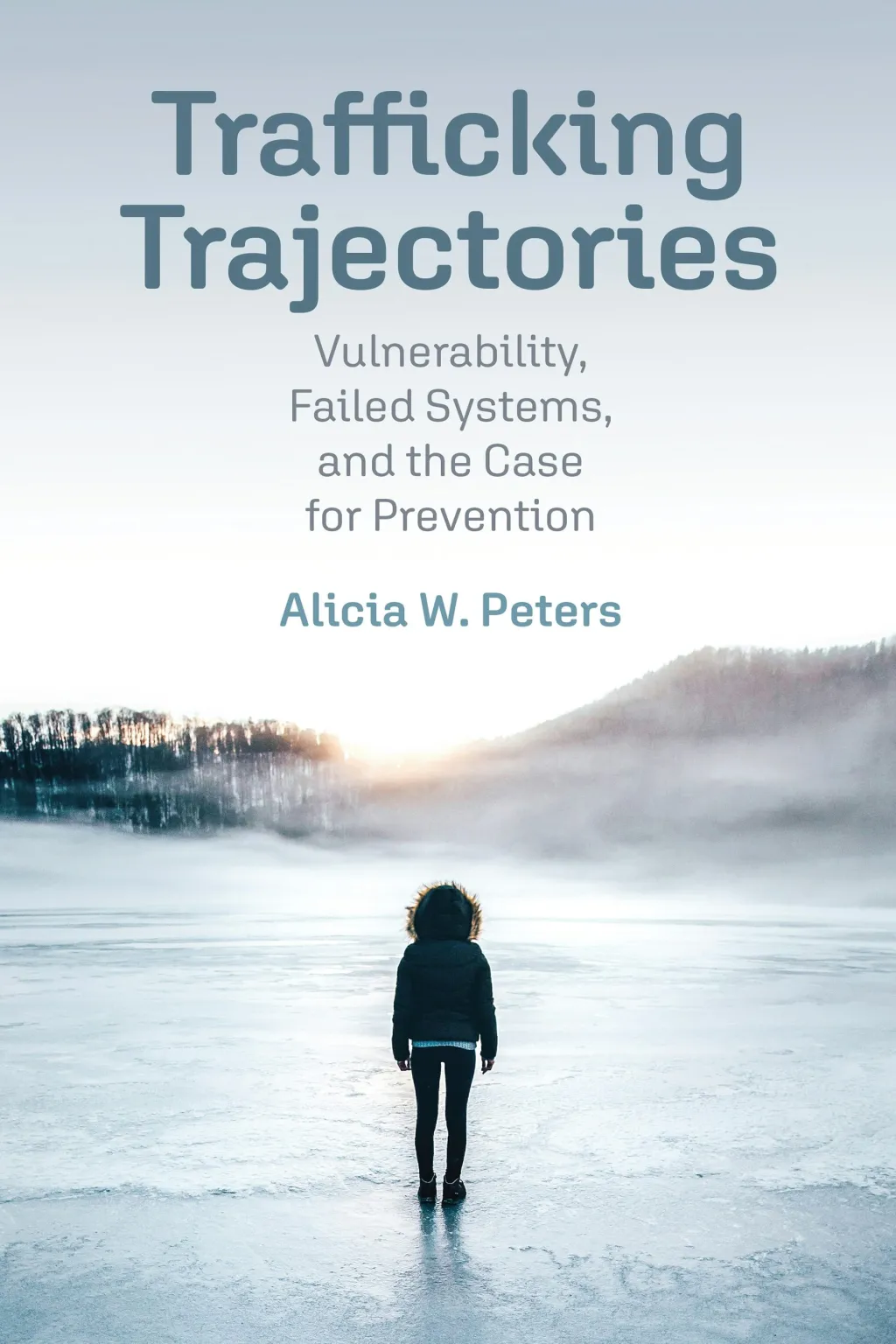UNE’s Alicia Peters examines the structural causes of human trafficking in her new book
Peter’s latest book “Trafficking Trajectories” focuses on the lived experiences of sex-trafficking survivors and frontline workers in New England

University of New England Associate Professor of Anthropology Alicia Peters, Ph.D., challenges conventional approaches to combating human trafficking in her latest book by focusing on the structural and societal contributors to human trafficking in the United States.
“Trafficking Trajectories: Vulnerability, Failed Systems, and the Case for Prevention,” published by the University of Pennsylvania Press, focuses on the lived realities and narratives of domestic survivors of sex trafficking in Maine and New Hampshire and their experiences of vulnerability before, during, and after trafficking. It also includes vivid accounts from frontline workers in the two New England states.
In the new book, Peters shines the light on survivor experiences to amplify the widespread structural vulnerabilities that are often overshadowed by the interpersonal violence inherent in trafficking in the United States. She argues that current criminal justice responses fail to address the root causes that make individuals vulnerable to trafficking.
Peters suggests broadening the response to trafficking by focusing more on systematic and preventative intervention, rather than on criminal legal intervention, ultimately offering policy recommendations aimed at providing more effective ways to address and halt situations of trafficking.
“Human trafficking is often thought of primarily as a criminal legal problem, but it is deeply rooted in vulnerability. The book argues for preventing violence before it occurs by addressing unmet needs and improving inadequate systems,” said Peters, who teaches in UNE’s School of Social and Behavioral Sciences and in the Gender, Women, and Sexuality Studies Program.
“The perspectives of survivors are needed now more than ever as key programs are being systematically defunded, and my hope is that the narratives included in the book will bring an element of nuance and humanity to a conversation that is often oversimplified and politicized,” she added.
“Trafficking Trajectories” is available from University of Pennsylvania Press.
Peters previously authored “Responding to Human Trafficking: Sex, Gender, and Culture in the Law,” also published by University of Pennsylvania Press. Both books were published by the university publishing house as part of its Pennsylvania Studies in Human Rights series.
